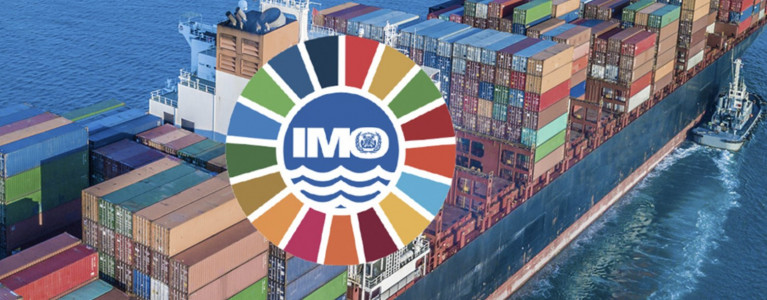Displaying items by tag: 'Sustainable' Shipping
Today is World Maritime Day 2020 – Sustainable Shipping for a Sustainable Planet
Today is World Maritime Day which the International Maritime Organisation (IMO) and the global maritime community have come together to celebrate the annual event. The 2020 theme is "Sustainable Shipping for a Sustainable Planet".
2020 saw everyone across the globe affected by the COVID-19 pandemic. Yet this global crisis has demonstrated the importance of shipping as the most reliable, efficient and cost-effective method of transporting goods internationally. Shipping remains the leading facilitator of the global economy, carrying more than 80% of global trade, said IMO Secretary-General Kitack Lim in his World Maritime Day message.
"Therefore, shipping and maritime will be at the heart of the economic recovery and future sustainable growth far into the future, both at sea and ashore, supporting an inclusive and resilient economy to underpin the achievement of the sustainable development goals. 'Sustainable Shipping for a Sustainable Planet', our theme for 2020 couldn't be more relevant now and for years to come," Secretary-General Lim said.
"In the post-COVID world, much focus will be directed at the 2030 Agenda for Sustainable Development and the 17 Sustainable Development Goals adopted by all UN Member States in 2015. These goals are as relevant as ever, and shipping is essential for sustainable development. The 2030 Agenda will only be realized with a sustainable transport sector supporting world trade and facilitating the global economy," Secretary-General Lim added.
The role of sustainable shipping for a sustainable planet will be highlighted during an IMO-hosted online event on 24 September.
At a separate event held on the margins of the UN General Assembly on World Maritime Day, Mr. Lim will highlight the important role of shipping and put a spotlight on the humanitarian crisis faced by seafarers who are stranded at sea due to travel restrictions imposed by governments to contain the spread of the virus. Mr. Lim will warn that seafarers should not be the collateral victims in this pandemic. He will underline that Governments must act in a coordinated manner to recognize seafarers as key workers, exempting them from travel restrictions, and implement the recommended framework of protocols for safe crew changes"
UN Secretary-General message on World Maritime Day
In a message issued on World Maritime Day, UN Secretary-General António Guterres said that "the theme of this year's World Maritime Day – 'Sustainable Shipping for a Sustainable Planet' – has gained extraordinary resonance as shipping has continued to transport more than 80 per cent of world trade, including vital medical supplies, food and other basic goods that are critical for the COVID-19 response and recovery."
Mr. Guterres reiterates his concern for seafarers stranded at sea and renews his appeal to Governments "to address their plight by formally designating seafarers and other marine personnel as "key workers", ensuring safe crew changes and implementing the protocols developed by UN agencies, as well as the International Chamber of Shipping and the International Transport Workers' Federation, allowing stranded seafarers to be repatriated and others to join ships."
A World Maritime Day IMO online event was hosted by IMO this morning which involved a high-level panel of speakers to debate "Sustainable Shipping for a Sustainable Planet". In additon a message by Kitack Lim, Secretary-General, IMO is available through this video link here.





























































